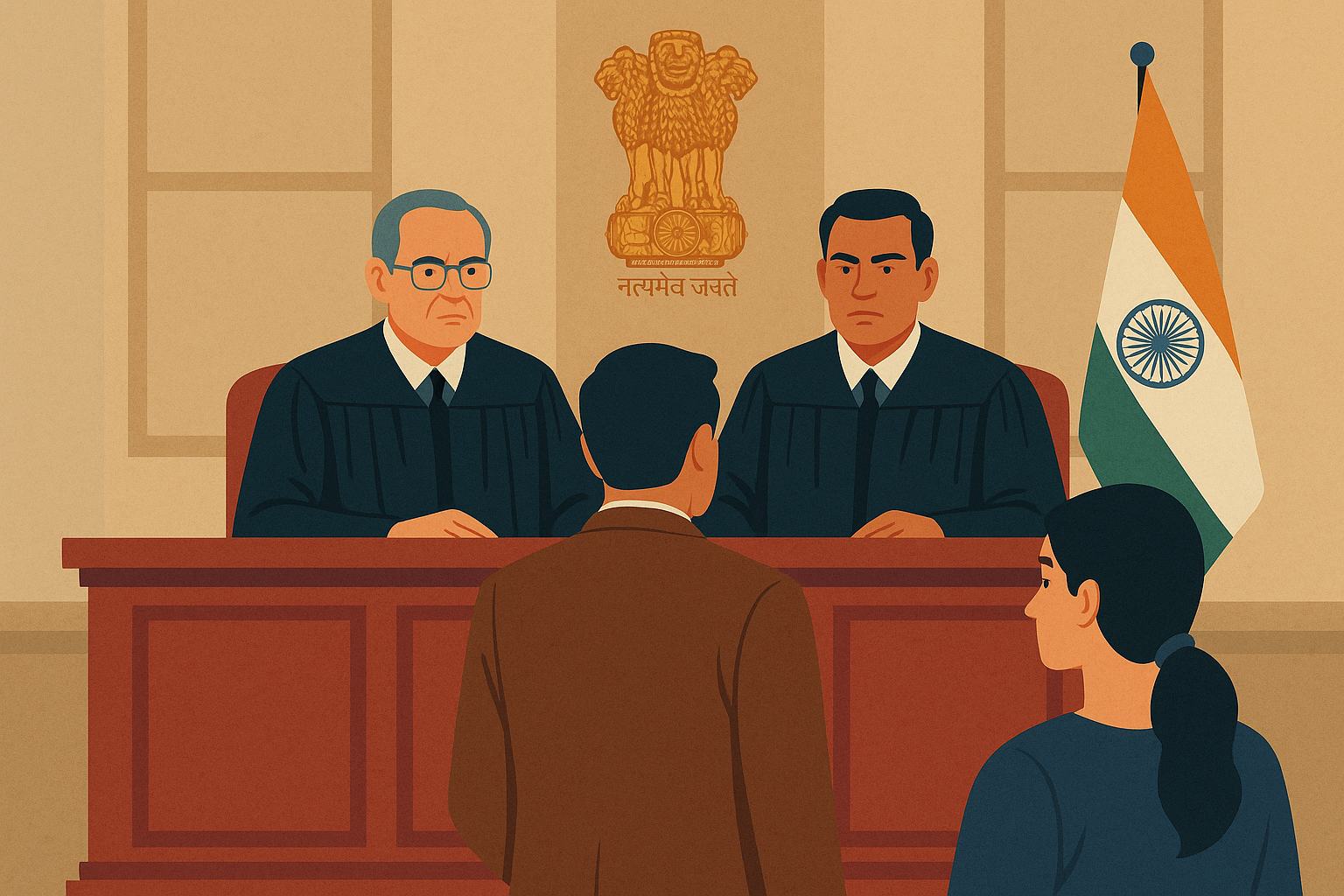Simplified Explanation of the Judgment
The Patna High Court recently dismissed an appeal filed by a petitioner challenging the rejection of his candidature for a Class-IV government post due to not possessing a matriculation (Class 10) qualification.
The case began when the petitioner, who had been empanelled as a candidate for Class-IV posts in 1992–93, applied against an advertisement issued in 2011. Initially, the minimum qualification for such posts was an 8th Class pass. However, in 2011, this requirement was raised to 10th Class (matriculation).
The selection process for the advertisement in which the petitioner applied was delayed. In December 2013, the Bihar Government’s General Administrative Department issued a notification clarifying that the minimum qualification for Class-IV posts would henceforth be matriculation. This change applied from 12 December 2012 onward, meaning any appointment after that date required the candidate to be a matriculate.
The petitioner’s application was rejected because he did not meet the new educational qualification. He argued that the recruitment rules could not be changed midway and relied on the Supreme Court judgment in K. Manjushree vs. State of Andhra Pradesh (2008) 3 SCC 512.
A single judge of the Patna High Court, in December 2022, dismissed the writ petition, holding that the cited Supreme Court ruling did not apply to his case. The judge noted that the recruitment process had not been altered midway for him, and in any case, his empanelment from 2012 was valid only for one year unless renewed, which was not proven.
The petitioner had also sought age relaxation, which was allowed for consideration. However, since he lacked the required matriculation qualification, his application was still rejected.
The court observed that other similarly situated candidates had also challenged the rule change earlier in CWJC No. 4693 of 2012, but both the writ petition and subsequent LPA were dismissed. Following this precedent, the present Division Bench found no reason to interfere with the single judge’s decision.
Accordingly, the court dismissed the appeal, holding that there was no illegality or procedural unfairness in rejecting the petitioner’s candidature based on the educational qualification requirement.
Significance or Implication of the Judgment
This ruling reinforces the principle that government employers can revise minimum eligibility criteria before final appointments are made, provided such changes are made through proper notification and apply prospectively. It clarifies that:
- Being on an earlier panel does not guarantee appointment if eligibility criteria change.
- Candidates must meet the qualifications in force at the time of appointment, not just at the time of application.
- Educational qualification requirements in government jobs can be lawfully increased to maintain better standards in public service.
This decision is significant for job seekers, as it underscores the importance of continuously updating qualifications to remain eligible for public sector employment.
Legal Issue(s) Decided and the Court’s Decision with Reasoning
- Whether the government could change the minimum qualification requirement from 8th pass to matriculation after the petitioner had applied for a Class-IV post.
- Decision: Yes. The court held that the change was valid, applied prospectively from December 2012, and was binding on all appointments thereafter.
- Whether this change amounted to altering the recruitment process midway, making it unfair to the petitioner.
- Decision: No. The court found that the process was not changed midway for the petitioner’s case and that his empanelment had already expired.
- Whether earlier empanelment in the 1990s or 2012 entitled the petitioner to appointment under old rules.
- Decision: No. Empanelment does not guarantee appointment and lasts only for a specified period unless renewed.
- Whether age relaxation could be granted without meeting the educational qualification.
- Decision: No. Age relaxation did not override the educational requirement.
Judgments Referred by Parties
- K. Manjushree vs. State of Andhra Pradesh and Anr., (2008) 3 SCC 512.
Judgments Relied Upon or Cited by Court
- Earlier decision in CWJC No. 4693 of 2012 and its dismissal in LPA
Case Title
Anand Kumar Jha vs. The State of Bihar & Others
Case Number
Letters Patent Appeal No. 212 of 2023 in Civil Writ Jurisdiction Case No. 21973 of 2014
Coram and Names of Judges
Hon’ble The Acting Chief Justice Ashutosh Kumar and Hon’ble Mr. Justice Partha Sarthy
Names of Advocates and who they appeared for
- For the Appellant: Mr. Shanti Pratap, Advocate
- For the Respondents: Mr. P.K. Verma (AAG-3)
Link to Judgment
MyMyMTIjMjAyMyMxI04=-sSg6IBA–am1–E–am1–w=
If you found this explanation helpful and wish to stay informed about how legal developments may affect your rights in Bihar, you may consider following Samvida Law Associates for more updates.









